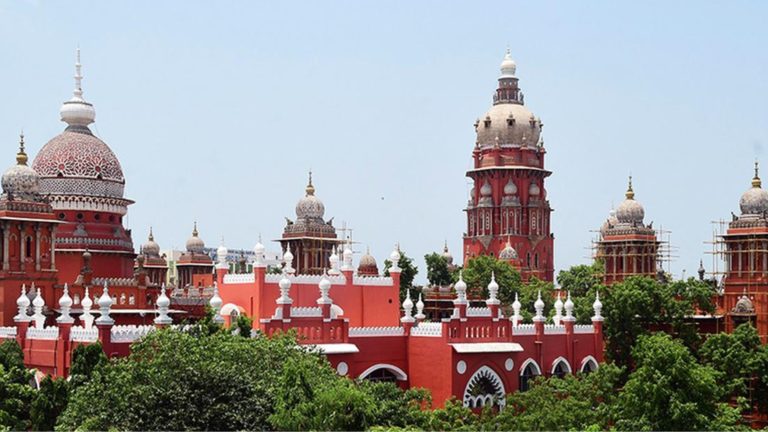The Madras High Court has recently observed that an allegation of rape of continuous molestation and harassment, unlike a lewd inappropriate remark, is a continuing misconduct and every day till the situation is redressed, a fresh cause of action arises.
Justice Bharatha Chakravarthy noted that in these instances, the injury did not end by forced physical intercourse but added up every day when the victim was made to remain silent and face the molester at the workplace. The court observed that this injury was further confounded by fear of victimization and thus would amount to continuous sexual harassment.
“When the offence complained of is a serious one having the effect of causing grave mental trauma and stress to the victim, pushing her to a dilemma not to reveal or complain due to the fear of secondary and tertiary victimization, on the other hand, she is also unable to withstand, swallow or suppress the same, then that state of the victim fits the definition of undergoing continuous sexual harassment,” the court observed.
The court added that sexual harassment caused considerable harm to women and affected their physical and mental health. The court added that often, the mental deterioration included depression, self-doubt, withdrawal from employment, fear of being labeled as a troublemaker, spoiling the organization’s reputation, etc. The court added that the victims also feared being blamed for the harassment and the victimization from the employer and society.
The court was hearing a petition filed by a Superintendent of Police Mohanakrishnan, against an order passed by the Internal Complaints Committee. The ICC had recommended taking disciplinary action against Mohanakrishnan and placing him under suspension till the departmental proceedings were complete.
Also read: IT union opposes Karnataka’s Extension of IT Sector from Standing Orders Act
Mohanakrishnan argued that the complaint was time-barred as it was not lodged within 3 months from the alleged incident of sexual harassment as per Section 9 of the Prevention of Sexual Harassment of Women at Workplace Act. He submitted that though the incident was alleged to have taken place in 2018, the complaint was lodged in 2022.
He further added that the principles of natural justice were not followed by the committee as he was not allowed to cross-examine the victim or the witness. He further contended that he was not given a copy of the complaint and was only given it after persistence.
The state, on the other hand, submitted that Mohanakrishnan had indulged in harassing several women employees. It was submitted that the act of sexual harassment should be held to be a continuing offense and thus the argument of limitation was unsustainable. It was also informed that the copies of the complaint were served on Mohanakrishnan and it was only due to the sensitivity of the matter, that he was not allowed to directly cross-examine the victim and the witnesses.
The court agreed with the submission and Mohanakrishnan’s arguments. The court also noted that the other contentions raised by Mohanakrishnan regarding non-supplying the copy of the complaint, not acting on the report within a time frame etc were only timelines intended to ensure prompt action and the same were not grounds for the delinquent to wriggle out of punishment. The court made it clear that the delinquent had to defend the charges on merits.
However, the court added that an opportunity had to be given to Mohanakrishnan to cross-examine the witnesses. While the court noted that the committee was right in not exposing the victim to the delinquent, the court added that at least with respect to the witnesses, the delinquent must be allowed to put forward the questions for cross-examination directly.
Thus, the court remitted the matter back to the ICC to continue the inquiry and directed the ICC to complete the inquiry within 60 days by conducting day-to-day proceedings as far as possible. The court further said that upon receiving the ICC’s report, the disciplinary committee was to take steps to complete the disciplinary proceedings.
Counsel for the Petitioner: Mr.S.Sivakumar
Counsel for the Respondent: Mr.Stalin Abhimanyu Additional Government Pleader
Citation: 2024 LiveLaw (Mad) 245
Case Title: R Mohanakrishnan v The Deputy Inspector General of Police and Others
Case No: W.P.No.10707 of 2024
Source: Livelaw
Stay connected with us on social media platforms for instant updates click here to join our LinkedIn, Twitter & Facebook



































